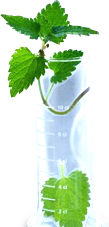



Author(s): Samar Abou Dargham, Reem Alloush, Ingrid Nader, Pascale Salameh, Sanaa Awada, Anna Maria Henaine
Introduction: Asthma is a chronic lung disease that affects the airways characterized by swelling, increased mucus in the airways and squeezing of the muscles surrounding the airways. In Lebanon, pharmacists play an integral role in optimizing patient’s health-related quality of life and achieving positive clinical outcomes. Studies emphasize that the pharmacist intervention in asthma management can improve the treatment effectiveness.
Objective: Evaluation of knowledge of asthma and its therapeutic education by Lebanese pharmacists.
Method: A descriptive, cross-sectional survey was carried out from the 1st of September till 15th November 2022, using a random sample of Lebanese graduated pharmacists from different districts. The final self-assessment questionnaire included 60 questions. Statistical analyses were performed using the Statistical Package for Social Science (SPSS) version 26.
Results: Out of 56 pharmacist participants, 78.6% were females and 67.9% worked in community pharmacies. The mean score of knowledge and practice of education was 20.32 (± 4.6008) out of 32. Eighty-seven (87%) percent of participants knew that asthma is characterized by wheezing with dry cough and chest pain mainly exacerbated at night. In addition, 41.1% considered that inhaled corticosteroids (ICS) are the first line treatment, 91.1% considered that ICS+ short-acting β2 agonist or ICS + long-acting β2 agonist is the maintenance treatment in mild to moderate asthma and, 78.6% knew that immunotherapy is the last line therapy of asthma. On the other hand, 91.1% reported that oropharyngeal candidiasis is the main side effect of ICS. Concerning the pharmacist’s role in patient education, 83.9% strongly agreed on advising the patients to rinse their mouth after ICS use. In addition, 44.6% strongly agreed pharmaceutical care improves management and treatment of asthma.
Conclusion: This cross-sectional study showed that the majority of pharmacists involved had a wide gap in the knowledge of asthma and in their role in treatment and therapeutic education.